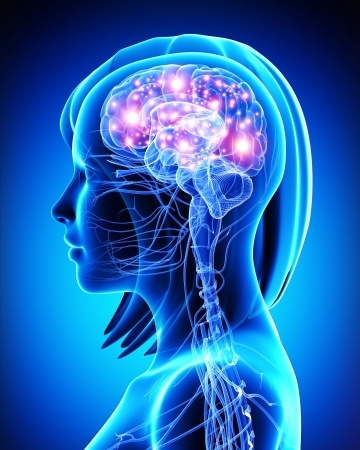| By Tracey Roizman, D.C.
 Theories about the cause or causes for cancer abound in scientific, nutrition and alternative health circles. One theory revolves around the balance of acid and alkaline conditions in your body. While this theory is highly controversial, there is some overlap between qualities of alkalizing foods and their cancer-prevention benefits. Consult your doctor or a qualified nutritionist for guidance on dietary measures to prevent or treat cancer.
Theories about the cause or causes for cancer abound in scientific, nutrition and alternative health circles. One theory revolves around the balance of acid and alkaline conditions in your body. While this theory is highly controversial, there is some overlap between qualities of alkalizing foods and their cancer-prevention benefits. Consult your doctor or a qualified nutritionist for guidance on dietary measures to prevent or treat cancer.
Flawed Theory
The theory that high-alkaline foods can prevent or cure cancer is flawed, according to David Kelson, M.D., author of the book “Principles and Practice of Gastrointestinal Oncology.”
According to proponents of this theory, since cancerous tumors are acidic, eating alkaline foods inhibits cancer growth by altering your body chemistry toward a pH that discourages cancer. However, says Kelson, cancer isn’t created by an acidic condition; instead, it is the rapid growth of cancer that creates the acid environment associated with cancer. Eating alkaline foods does not significantly alter your pH, and eating in an extreme fashion that excludes animal proteins and grains, both of which are acid-forming, can be harmful to cancer patients, adds Kelson.
Alkaline Soil
A diet with a ratio of four parts alkaline foods to one part acid-forming foods speeds cancer recovery, says Dr. Willem Serfontein, author of the book “Cancer Diagnosed: What Now?” Allowing an acidic environment to persist promotes cancer growth, while reversing that pattern toward a more alkaline environment hastens the healing process. Serfontein cites the example of Senegal, which has the lowest rates of cancer in the world. One possible contributing factor to their low cancer rates is that Senegalese people follow a highly alkaline diet because of highly alkaline, selenium-rich soil in that country.
Mineral Depletion
Depletion of minerals, which are alkalizing to the body, leads to cancer and other degenerative diseases, according to Jacob Swilling, Ph.D., author of the book “Cancer Self-Help Support Program for Cancer Patients, Family, Care Givers and Friends.” Your body uses minerals to buffer the acids created when certain foods are digested. However, modern soils are often deficient in minerals. Growing methods, shipping and storage can further deplete the mineral content of foods, so that the minerals lost in buffering dietary acids do not get adequately replenished. Over-acidification results, impairing your cells’ ability to function properly. Cellular damage from mineral deficiency causes release of toxins, further acidifying your body and promoting a variety of degenerative diseases, including cancer, says Swilling.
Phytonutrients
Many high-alkaline foods are particularly helpful for fighting and preventing cancer by virtue of their abundant nutrient and phytochemical content, says Gary Null, Ph.D., in his book “Get Healthy Now! with Gary Null: A Complete Guide to Prevention, Treatment and Healthy Living.” Foods like broccoli and other cruciferous vegetables, green foods, such as spirulina and barley and wheat grass, fruits, fruit and vegetable juices and seaweed are all alkalizing and provide a wealth of anticancer nutrients.







